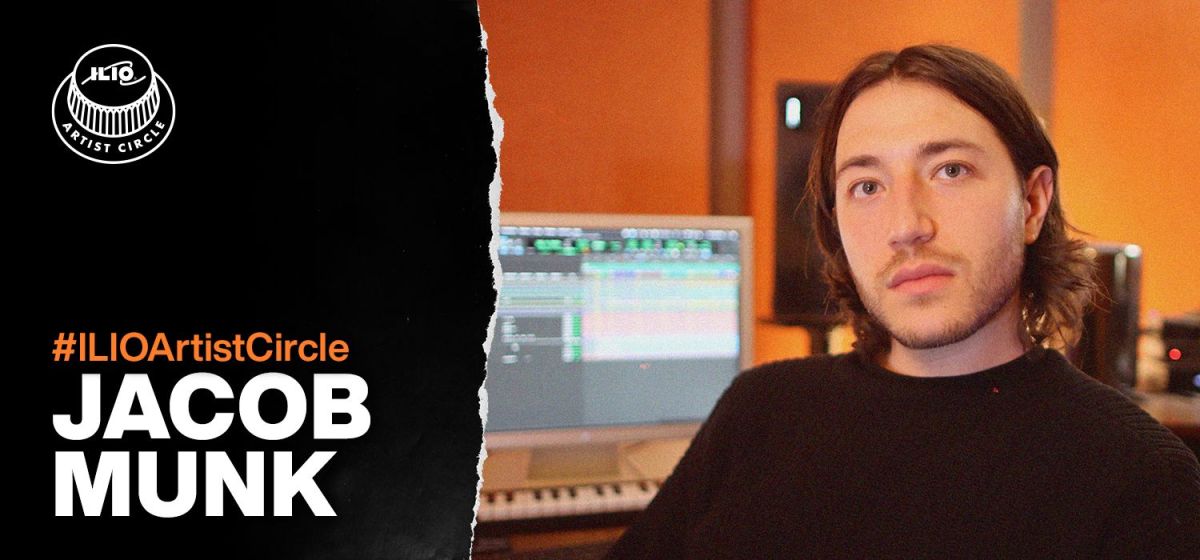Jacob Munk is an LA-based songwriter/engineer/producer who comfortably straddles the divide between making music with physical instruments and producing it almost exclusively in-the-box. His expertise and artistry have been key ingredients for successful recordings by artists such as Liam Gallagher, Miley Cyrus, Mike Snow, 5 Seconds Of Summer, and others.
Here's one of his latest productions with Bunny Lowe:
Seventeen by Bunny Lowe, produced by Jacob Munk
ILIO spoke with Jacob Munk about a wide range of topics, including his love for the Overloud range of GEMS hardware emulations of classic recording gear.
Background
I think there will always be a next layer, and that’s what’s so exciting about it all. And infuriating about it, in the best way.
“I grew up in the suburbs of Los Angeles,” Jacob shares, “and I fell in love with music early on, starting with playing trumpet in the elementary school band. That moved to playing guitar in middle school, and I quickly wrangled my brother and a friend to join me on bass and drums, and we formed our first band. That first experience of collaborating with others to play music, write songs, and perform hooked me, and I played in various bands from then on, all through high school. We wrote and recorded our tunes and put them up on Myspace.”
“As it tends to happen, one of the members often becomes the de facto producer, and I naturally fell into that role and really enjoyed the process of songwriting and recording. I set myself up in an extra bedroom in my parent’s house with a computer and became obsessed with learning all the creative ways that people made records. I would read all the liner notes on records. I liked to see who recorded them, who produced them, what gear they used… I was always looking for what the next ‘layer of the onion was’ that I could peel back to learn more. I think there will always be a next layer, and that’s what’s so exciting about it all. And infuriating about it, in the best way.”
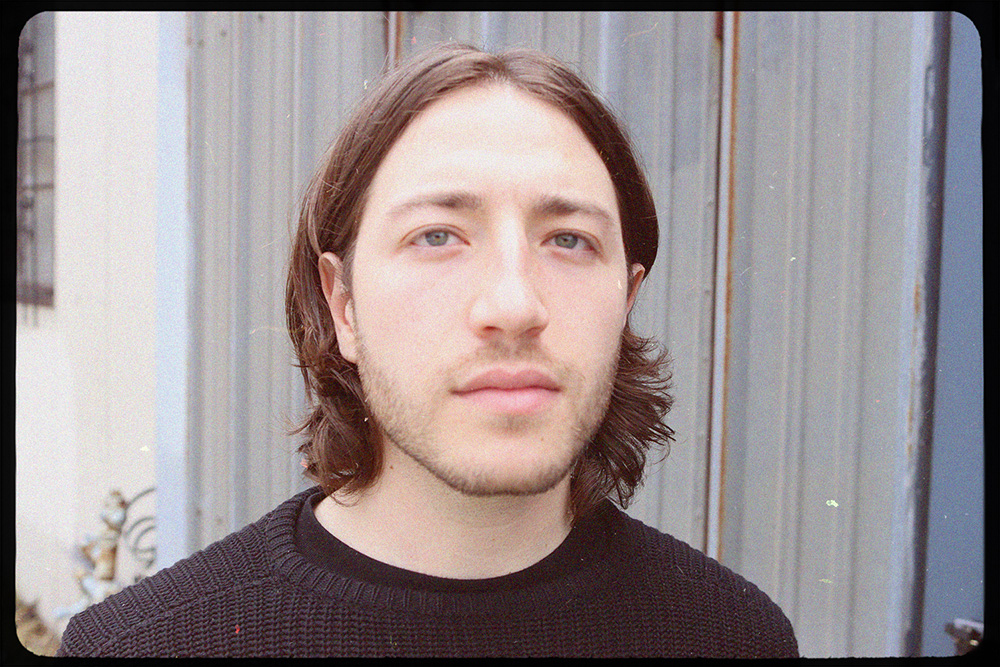
Munk continues, “I was 16 years old, and these dudes who were like 23, 25, and in bands started coming over to my parent’s house and paying me to make records for them. I don’t know how I pulled that off, but I did. After high school, I was in a few bands and did lots of touring, but I quickly burned out on that aspect of the business. I missed the creativity of being in my studio and making records. I missed Pro Tools, which is hilarious to even say! So after a few years, I decided to focus full-time on making records and writing and producing songs. I soon fell into an opportunity to work with another producer named Andrew Wyatt as his engineer. That was incredible, and I learned a lot from him over the next few years, working on some incredible projects that I doubt I would have gotten my foot in the door to otherwise. Then about three years ago I started doing my own things, and that brings us up to now.”
His Proudest Collaborations
Asked who he is most proud to have worked with, Munk offers, “There are a couple. Growing up, my first love was guitar music, and one of the bands I loved (and still do) is Oasis. Working with Andrew, I got to work on Liam Gallagher’s second solo record. Getting to record him and hear that voice come back over the speakers was pretty surreal. Another one was working briefly on a Caroline Polacheck project — she’s incredible — genuinely one of my favorite artists. She’s a bucket list person for me to work with again."
I would call myself a songwriter first, that gets to produce the record as a treat.
Blurred Lines
Discussing how he handles the roles of engineer and production, Jacob related that he only engineers his own productions at this point. “The two roles are pretty seamlessly connected in my brain, so it feels really natural to do that. My previous engineering experience makes it fairly simple for me, and there’s not a lot of friction from idea to execution because I’ve set up my workflow so I can work quickly.”
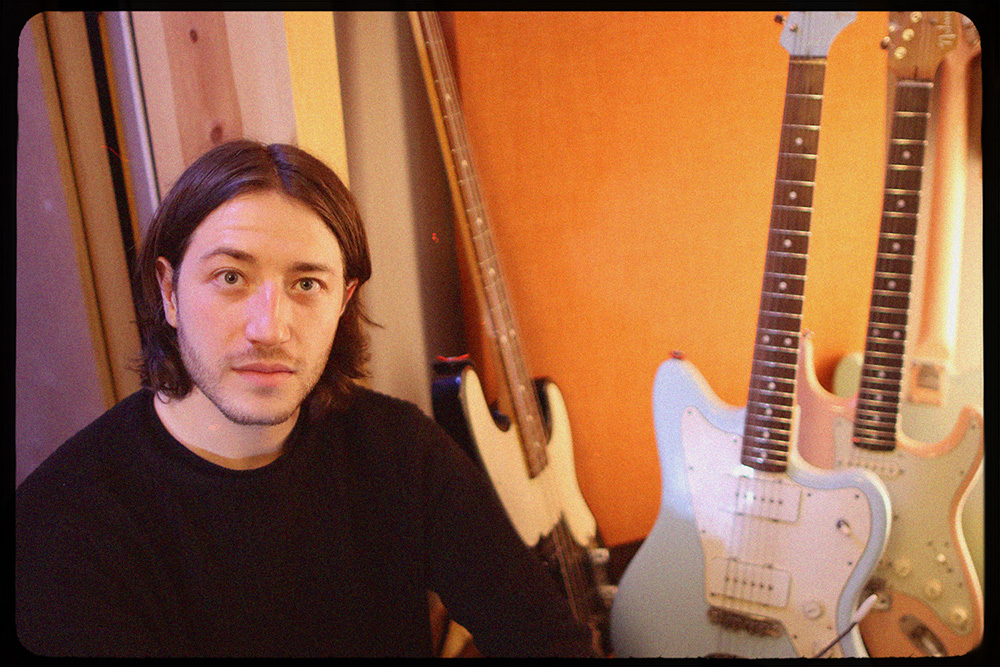
He continues, “When you’re asked to engineer, it’s hard not to also be thinking like a producer, and visa versa. It very much depends on the context, of course, but I’ve certainly been in rooms as an engineer where there wasn’t a quote/unquote producer. And although that wasn’t my title, or role, it very much fell to me to be making decisions. It depends on the situation and your relationship with the artist/band. As an example, there’s a band called Brevin Kim that I’ve done a lot of work with, and that ends up being a co-production credit, because they’re so hands-on in the process. Sometimes they’ll send me a song and say, ‘We’re stuck, do your thing on it.’ And I’ll send it back and they’ll do some more work and we keep trading stems back and forth. It’s a very fluid creative process. A lot of artists are producers themselves these days, which I love.”
A lot of artists are producers themselves these days, which I love.
“I’ve re-learned what the word producer means several times, in fact. If you had asked me five-six years ago, I would have said that it is a person who was helping to come up with parts in the studio or to react to what the artist/band was doing; very much like a coach. But now, as I’ve transitioned into the songwriting world, that word can also mean somebody who makes the track, and then a song gets written over it. A lot of the time for me, I’m working with the artist and another writer, and I’m coming up with some chords, and then we all write the song on those chords, and then they leave and I build the track, or whatever. That’s my role as a kind of producer. Sometimes people are beat makers, and that’s also a type of producer. I would call myself a songwriter first, that gets to produce the record as a treat.”
“I do collaborate with a lot of other producers as well, and have co-produced a lot of records. This year I co-produced a project with Mike Dean, which was really cool: he’s a legend and a huge influence on my work.”
I Guess by Ekkstacy, produced by Mike Dean and Jacob Munk
A Life in Software
When we asked Jacob how often he uses plug-ins in his workflow, he shot back: “Every. Single. Day. Of. My. Life.” OK, we got it! He continued, “I love software — all of my work is in the box, and I don’t see that changing, ever, because the tools are so good, and just getting better. I work all over the place: I work in my studio, which is across town from where I live. Sometimes I’ll get a call, ‘we need stems for this, that, and the other.’ And I need to pull up a session on my laptop, and it needs to be exactly the same as where I left it at my studio. In those cases, having flexible software is absolutely crucial. The same goes for when I have to work at another producer’s studio. Maybe we’ll have a writing session over there, and I’ll just bring my laptop with me. Maybe I’ll be traveling — It’s important for me to be able to work anywhere. And when I get a request for stems, a session, whatever, I can’t tell the label ‘I’ll get that to you in two weeks when I’m back home.’ You’ll never work again!”
I love software — all of my work is in the box, and I don’t see that changing, ever, because the tools are so good, and just getting better
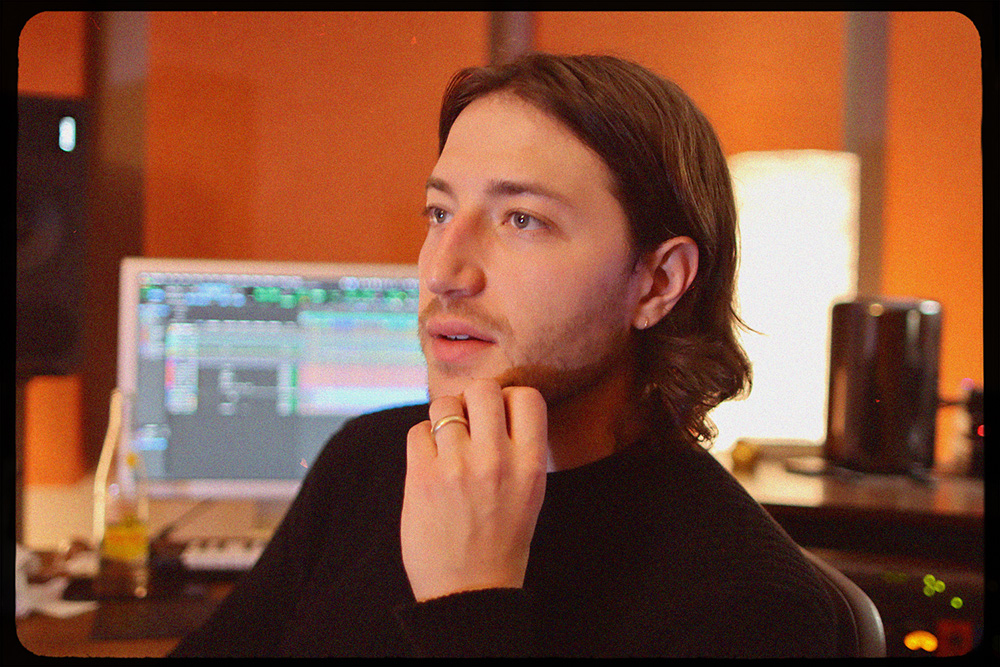
Discussing his recent adoption of the Overloud GEMS hardware emulations, he enthused, “I compared the GEMS to the current things I was using and liked them just as much, if not more in some cases. One of my favorites is the Fairchild compressor (called the Comp670): I like that there’s three different emulations, Milan, London, and LA, and they’re all a little different. I think I like the LA one the best…it might just be because it says Los Angeles, and I think, ‘oooh, that sounds good because that’s where I live!’ <laughs> But I really like it a lot, and it’s been living on my parallel vocal FX return for a couple of months now. It took the place of a couple others ones I was trying. In one case, I had three plug-ins running to get the job done, and it’s taken the place of all of them. It sounds great, and it has this low-end oomph that is exactly what I’m going for in a parallel compressor when I’m dealing with low-mids in a vocal. I’m always treating that in my sessions, it seems. It rules, it’s great. Another one that I really love is their 1176 emulation (called the Comp76). It sounds awesome, and I did a blind shoot-out with the one I was using before and I liked it better. Done. It sounds like I use a lot of compressors in my mixes, and I really don’t, I just use those two, and as much for the color and vibe they give me than for the job of compressing.”
It sounds like I use a lot of compressors in my mixes, and I really don’t, I just use those two, and as much for the color and vibe they give me than for the job of compressing.
"I like the Echoson delay a lot — that one’s a lot of fun to automate, and do hardware-like throws using it. The EQs really add that special sauce that is not just about cutting or boosting frequencies, but adding that special something… how the hardware would saturate slightly. That’s why I use certain devices: for their character as much as their function. That’s the fun part of using these plug-ins.”
Chasing Trends
When our discussion moved into changing trends in music, Munk had some interesting things to say. “I tend to feel that trends are always late,” he offered. “I’m not the first to say that, I can’t remember who did. Somebody smarter than me, and I agree. Because often, when you hear a song, it was written a year ago, maybe more, and delivered several months earlier, waiting to be released. When you finally hear it, it’s kind of old. Older. So the sound of ‘now’ already happened a couple of months ago or more, at least in the context of pop music and the broader category of popular music. That’s why you’ll always be late trying to chase a trend you hear. It’s not necessarily about tricking your audience into thinking it’s the freshest, newest thing.”
“Obviously there’s some influence: I’m always listening to new stuff and I’ll get inspired by things I hear, and I’ll keep them in the back of my mind. Maybe a song made me feel something and I’ll try to connect back to that."
Jacob then emphasized the importance of authentic songwriting: "Maybe it’s something simple, like just writing a song with a guitar and singing, and if that works, it’s good. Chances are you don’t need to do a lot more to it to make it feel fresh and current. Hopefully it’s just honest and it makes you feel something. That’s why I say I think of myself as a songwriter first,” Jacob states. “Because the song is the most important thing.”
If the song isn’t working, then nothing I do on the production side is going to fix that.
“Sure, production is cool, and I love it. I can dive super deep and have lots of fun doing it; especially if a song isn’t the most favorite I’ve ever worked on, or written. Then I might lean heavier on production moves. If the song isn’t working, then nothing I do on the production side is going to fix that.”
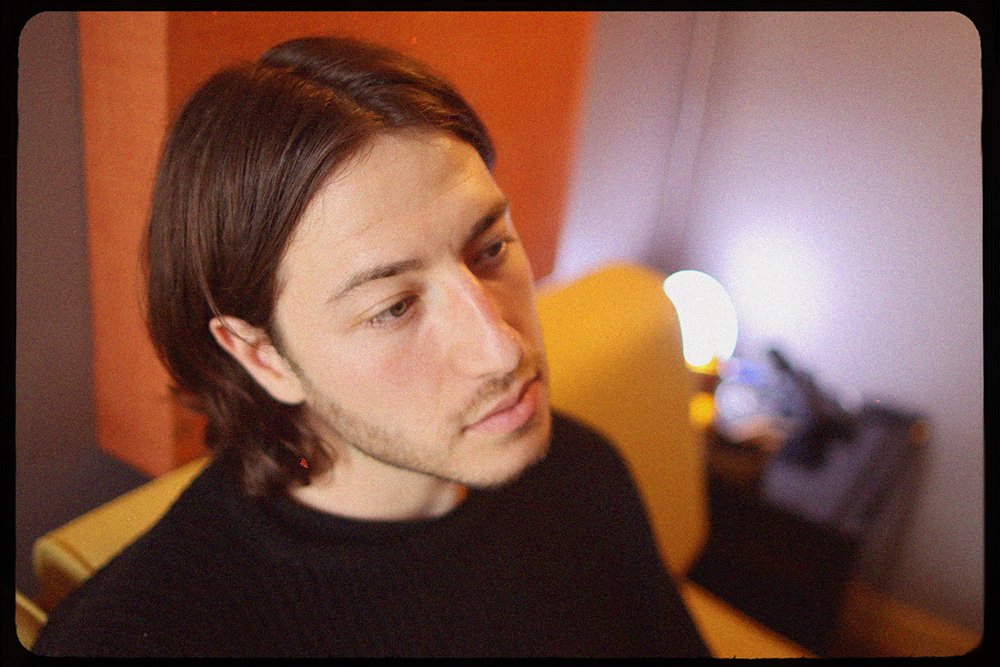
Closing Thoughts
Asked what he would be doing if he weren’t a musician, Jacob answered without hesitation, “I’d be cooking. I have friends who do it at a very high level, and while I don’t think I could do what they do, I’ve cooked a little bit in restaurants and it’s a place I really enjoy. I think there are a lot of elements within cooking that are similar to being a musician. You’re balancing elements, you’re a part of a team that is serving an end goal, and you have to fill different roles in the process. One day you’re a guitar player, the next you’re the producer, the day after that you’re writing top line…and if you’re doing it right, it’s not about you. It’s about the song and the end result. Or the final dish you’re serving.”
In closing, he offered this advice to anyone aspiring to do what he does. “Honestly, you’re going to get told no a lot, and it’s gonna hurt. Just don’t worry about those people. My favorite things I’ve been part of, and the things that have helped me build my career have been with people that I like. Go find the people that tell you yes. Make music with people you like making it with, and good things will happen.”
Follow Jacob Munk on Instagram here.

